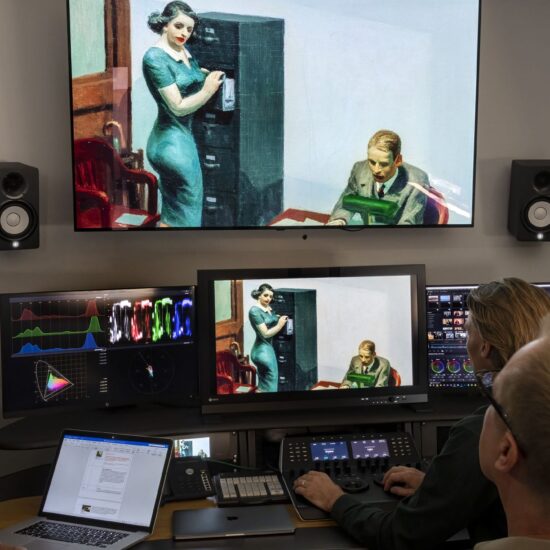
You can struggle, fight and assemble the very best team in the world. You can get the hottest script and turn it into a film festival darling. But you can throw it all away by being a bad filmmaker. And by that I mean, not only to you need to be a great filmmaker to succeed. Bad Leaders make Bad Filmmakers
At Raindance Film Festival we see filmmakers (and leaders) of every stripe and colour. Here are my ideas of how you can identify and hopefully avoid ,the bad filmmakers qualities that are almost always to do with leadership. I believe it is possible to identify and avoid these qualities making the people you work with in the future more cooperative, productive and creative.
The harm bad leadership causes
I might sound melodramatic. But I’m not.
Working with a tight filmmaking team that isn’t led right can cause some of these outcomes:
- people quitting
- finance falling apart
- nasty ambience on set
- projects tanking
If these aren’t bad enough, there are a lot more ways that bad filmmakers can destroy their career.
Even one bad apple on a team can ruin a filmmaker’s project. Even if members of your cast and crew don’t quit and walk away, it can be enough to dent morale , destroy creativity, and ruin the culture of the film’s production. These problems don’t always leap out. Rather they can grow and fester unless checked. And if they aren’t checked, the only people who stick with you are the ones who tolerate poor leadership, or, who are simply hanging on as long as they keep the coins coming in.
A bad filmmaker has no excuse for bad leadership.
1. Bad leaders don’t delegate
Everyone working with you wants your wisdom, vision and input. And everyone gives up their daily slice of hours to help you achieve your dream. are you using your time wisely, or not.
As a leader, are you willing to use input, suggestions and ideas from others? Or are you locked into the old adage: ‘If you want to get something done right, you have to do it yourself.’ If you want to raise the morale of your team through the roof, indulge their suggestions and ideas, and see your team’s energy and morale rocket through the roof.
Delegation is a fine art. `Here are a couple of tools I use when considering how to delegate the many and vried tasks at Raindance.
And hen there are important tasks to do, I confer with David Martinez, executive Director, to see who’s time and insight would be best served at each task. I’ve found that trusting the team and benefitting from their innovative ideas means that the entire Raindance social enterprise venture reaps rewards.
2.Bad leaders don’t prioritise.
I’ve worked at companies before I started Raindance, where the company and it’s bosses were everything I didn’t personally believe in. Each day I was there I drowned in an overwhelming sense of inertia.
Filmmaking needs a committed crew where everyone on the team understands that the priorities are, and embeds the company’s objectives as their own. It also depends what stage your project is at, and at what stage your own career is at. A good filmmaker is a good leader. And will be able to rally the team towards common and shared values.
Don’t fall into the temptation of failing to prioritise. Make your strategic priority that of to prioritise!
3.Closed mindedness is a bad leadership trait
The successful people, and this includes filmmakers, of the past hundred years have embraced new ideas and had innovative and exploring minds. Refusing to embrace new ideas will leave you exposed to a path of mediocrity. It’s important to remember that your career is a series of incremental improvements. Embrace the suggestions and ideas from others. And evaluate.
4.You are known by your example
A filmmaker, like the head of any creative startup, has to make the rules. And breaking those rules is one of the quickest and surest ways to break morale. And its not just about breaking with policies you have set up. It’s about leading by example. Practise what you preach as they say.
- Set a start time, and then get in an hour after the interns
- Say you care about people’s well-being and then work 24/7
- Set precise naming conventions and then break it yourself
- Schedule regular meetings and then cancel last-minute or turn up 15 minutes late time after time
Whatever rules and protocols you set up is up to you. Remember that your integrity matters more than anything. Make sure your words and actions match up.
5. Poor communication is the hallmark of bad leadership
Hands up from me at Raindance. I used to insist things were done a certain way ‘because I said so.’ It took me a long time to learn how to explain the context of a direction, and to listen to my team. I am also fortunate to be surrounded by a team of people far smarter than I am. And the work I do is far richer because we all share our knowledge and are prepared to listen and learn from each other.
Open your door, your ears and your inbox!
6. Bad leaders crave personal success
It’s a rare filmmaker that completes a project entirely on their own. By its very nature, filmmaking is a collaborative venture. everyone on the team makes important and valuable contributions. A bad leader puts their own success in front of that of their team. It’s true that leaders lead. But when you are th front person of a team it means you can’t chase your own personal glory at the expense of everyone else who has helped you on the way.
How do you ensure your team’s success? Support others. Play to their strengths. Learn their weaknesses. Use the energy of their personal motivations. Their success will be your success,
7: Doesn’t seek feedback or personal improvement
Management and leadership are two very different skillsets. A good leader keeps building on their skill. One of the hallmarks of a good leader, and filmmaker for that matter, is the ability to ask for feedback. Not inviting feedback means you think you’ve got everything covered. Don’t ask how you did. ask how you can do it better.















